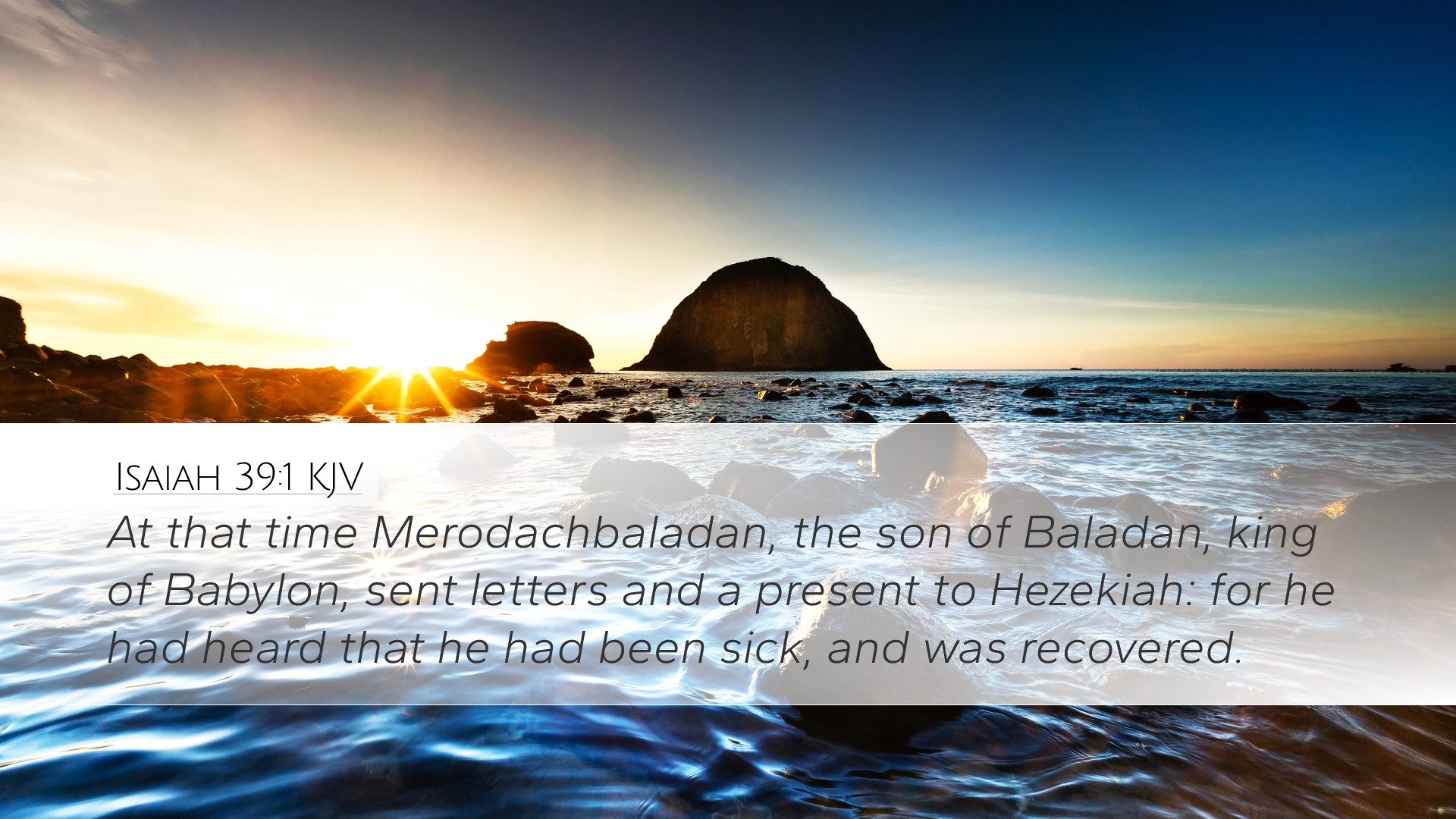Commentary on Isaiah 39:1
Isaiah 39:1 presents a crucial episode in the narrative of the Book of Isaiah, depicting a critical moment in the history of Judah and its relationship with God. This passage serves as a pivotal point, where the actions of King Hezekiah invite divine scrutiny and reflection.
Text of Isaiah 39:1
“At that time Merodach-Baladan the son of Baladan, king of Babylon, sent letters and a present to Hezekiah; for he heard that Hezekiah had been sick, and was recovered of his sickness.”
Contextual Background
This verse falls in the context of the subsequent chapters that address the sovereignty of God, the prophecy of the coming judgment, and the hope of restoration. Hezekiah, after experiencing divine healing, finds himself in a vulnerable state, leading to interactions that have far-reaching implications for Judah.
Historical Context
The historical backdrop presents Merodach-Baladan as the ruler of Babylon, a powerful entity at the time, signaling growing intrigues among nations. Hezekiah's illness and recovery serve not only as a personal testament to God's mercy but also as a focal point for international diplomacy.
Theological Insights
This verse raises profound theological questions about human responses to divine blessing and the tendency toward pride and self-reliance.
1. The Nature of Divine Intervention
Hezekiah's miraculous recovery signifies God’s intervention. Matthew Henry in his commentary emphasizes God’s compassion and readiness to heal those who trust in Him. God's healing hand is not merely a restoration to health but a divine purpose in action.
2. The Dangers of Pride and Diplomacy
Albert Barnes notes that Hezekiah's openness to Babylon’s overtures highlights the danger of pride in the face of God’s mercy. Hezikiah’s actions can be interpreted as an expression of human pride. Instead of attributing his recovery to God's grace alone, Hezekiah engages in an alliance that ultimately leads to his downfall.
3. The Call for Discernment
According to Adam Clarke, believers are called to discern the motives behind seemingly noble gestures. The Babylonian visit was not merely a congratulatory gesture; it was imbued with political intrigue aimed at undermining Judah’s sovereignty.
Application for Today
The insights derived from Isaiah 39:1 resonate with contemporary believers, providing lessons on humility, reliance on God, and discernment.
1. Embracing Humility
Pastors and theologians are reminded that in times of personal or communal victory, humility should reign. The propensity to boast or align ourselves with worldly powers can distract from the Lord’s plans and purposes.
2. Recognizing God’s Sovereignty
Bible scholars would do well to remember that God’s sovereignty remains unchallenged despite political machinations or earthly diplomacy. The unfolding narrative of Judah serves as a reminder that faithfulness to God invites His favor rather than reliance on the transient support of external forces.
3. The Importance of Discernment
Students of the Bible today must cultivate discernment in understanding the motivations behind external influences in their lives. Not every opportunity dressed as a blessing is in alignment with God’s will.
Conclusion
Isaiah 39:1 is compact yet replete with rich insights for various audiences within the faith community. Through the lenses of historical context, theological reflection, and contemporary application, this verse warns against pride, encourages divine reliance, and upholds the call for discerning faith. As God's people engage with the world, let them do so grounded in the assurance of His sovereign will.


